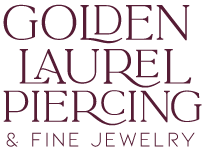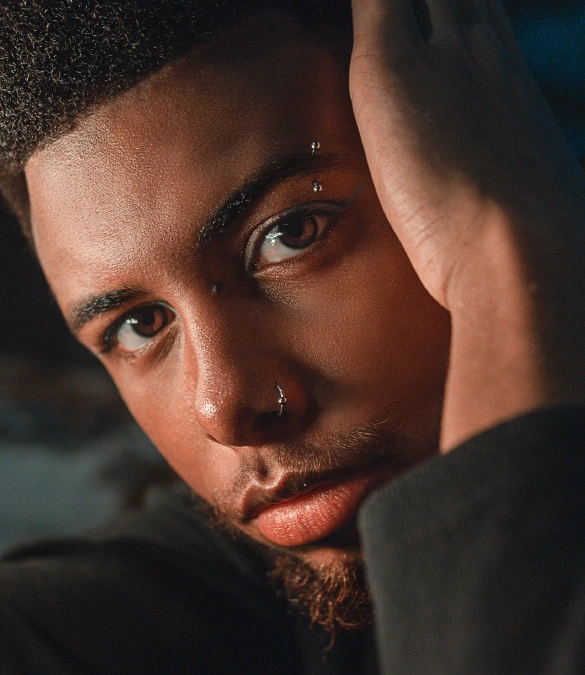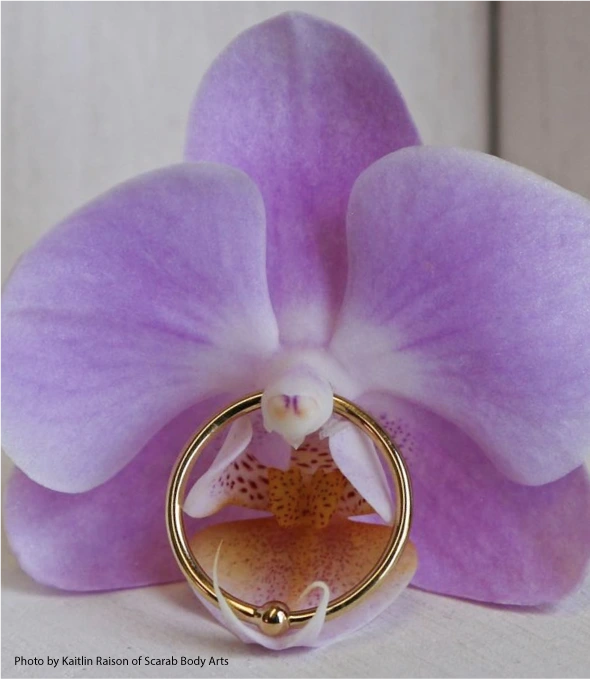After a piercing, your body will heal itself. You just might need to give it some extra TLC during the process. Aftercare is very simple, but here are some in-depth tips and best practices to make sure the piercing site stays clean and heals properly with minimal discomfort.
-
Ear & Body Piercings
As a rule, your body is designed to heal itself; that’s what having an immune system is all about! When healing a piercing, you just want to let your body do its job, which actually makes aftercare very simple.
Healing piercings should only ever be cleaned with fresh running water or sterile saline. Rinse the piercing 1-2 times daily for 30-60 seconds to loosen up any crustiness or dry matter and clear it away, allowing the piercing to drain and breathe properly.
After rinsing, you will need to dry the piercing. Very gently pat dry using a clean paper towel or non-woven gauze. You can also use a clean blow dryer on the ‘cool’ setting pointed at the piercing for 20-30 seconds to ensure there isn’t any excess moisture being left behind.
Visit your piercer to follow up on the piercing and downsize the jewelry, if recommended.
-
What to Expect
It is perfectly normal to experience tenderness, bleeding, drainage, and bruising within the first few days of getting a piercing, especially if it gets bumped or snagged. The piercing site will likely remain slightly swollen and tender for the first few weeks. As it heals, the piercing may become crusty and itchy. This is also a normal part of the healing process and will clear up with time, patience, and care.
It is important to keep in mind that, even once the obvious signs of healing have passed and everything “seems” healed, a piercing is not necessarily fully healed. It takes time for a piercing to become established. If you like your piercing and don’t want to risk losing it, do not change or remove the jewelry on your own within the first year of having it.
-
What to Avoid
- Do not touch your piercing or the jewelry – no twisting, turning, or rotating!
- Do not use chemicals, oils, ointments, harsh soaps, salt soaks, etc. on the piercing – if it wasn’t explicitly recommended by your piercer, just don’t put it on your piercing.
- Do not use cotton balls or cotton swabs on your piercing – they leave fibers behind that cause irritation.
- Do not change or remove the jewelry in your piercing before it has been recommended by your piercer.
- Avoid bumping, hitting, and snagging your piercing.
- Avoid lying or sleeping on your piercing for the entire estimated healing time – a travel pillow can be useful for certain piercings if you’re struggling with this!
- Avoid getting any harsh soaps, moisturizers, or cosmetic products in a new piercing.
- Avoid oral contact and getting others’ bodily fluids around your piercing.
- Avoid swimming or soaking your piercing – no pools, hot tubs, rivers, lakes, etc.
-
Oral Piercings
Oral piercing aftercare is not drastically different from the aftercare recommended for other piercings. The outside of oral piercings should be cleaned and cared for in the same way as other piercings. To clean inside the mouth, it is recommended that you just rinse regularly with cool bottled water – particularly any time you eat, drink, smoke, or vape. Additionally, you may want to replace your toothbrush as an extra precaution.
Visit your piercer to follow up on the piercing and downsize the jewelry; wearing improperly fitted jewelry in oral piercings can cause lasting damage to your gums and teeth.
-
What to Expect
Oral piercings tend to swell more than other piercings, but it typically only lasts for 1-3 weeks, depending on how well you care for your piercing. Discomfort and tenderness should be expected during the initial swelling period. Taking over-the-counter anti-inflammatory medication according to the package directions can help mitigate the swelling and discomfort, if you are able to take it.
Once the swelling has gone down, the jewelry will feel long and awkward, and it may even hit or get caught on your teeth. It is important to visit your piercer and downsize the jewelry when you notice this starting to happen.
-
What to Avoid
- Do not play with the jewelry.
- Do not use mouthwash containing alcohol or peroxide – if this is something you are already using as part of your oral care regimen and you do not want to stop use, dilute the mouthwash 60-70% with clean water.
- Avoid talking more than necessary.
- Avoid any activity that would result in others’ bodily fluids getting into the piercing – do not engage in oral sexual contact, including kissing, and avoid sharing food or drinks.
-
Genital Piercings
The best way to clean a healing genital piercing is in the shower. At the end of your normal shower routine, take a pea-sized amount of a mild, chemical- and fragrance-free soap and carefully clean the area around the piercing site. Make sure not to move or shift the jewelry while doing this, and then thoroughly rinse the piercing for 30-60 seconds before getting out of the shower.
After showering and rinsing, you will need to dry the piercing. Very carefully pat the piercing dry using a clean paper towel or non-woven gauze. Allow the piercing to air-dry for a few minutes before getting dressed.
-
What to Expect
Swelling, tenderness, bleeding, and drainage are all likely to be experienced when healing a new genital piercing. While some of these things may seem concerning considering the area and nature of the piercing, rest assured that they are perfectly normal. As time goes on,
the piercing may become crusty and itchy, which is also a normal part of the healing process.Because humans are so vastly unique, there can be a lot of variation in anatomy, comfort, and sensation, especially when it comes to genital piercings. Once your piercing is fully healed, you may need to experiment with different sizes and styles of jewelry to find out what best suits your preferences and lifestyle.
-
What to Avoid
- Do not pick at your piercing or play with the jewelry.
- Do not use chemicals, oils, ointments, harsh soaps, salt soaks, etc. on the piercing – if it wasn’t explicitly recommended by your piercer, just don’t put it on your piercing.
- Do not change or remove the jewelry in your piercing before it has been recommended by your piercer.
- Avoid swimming or soaking your piercing – no pools, hot tubs, rivers, lakes, etc.
- Avoid any activity that would result in others’ bodily fluids getting into the piercing – do not engage in unprotected sexual activity or oral sexual contact.




